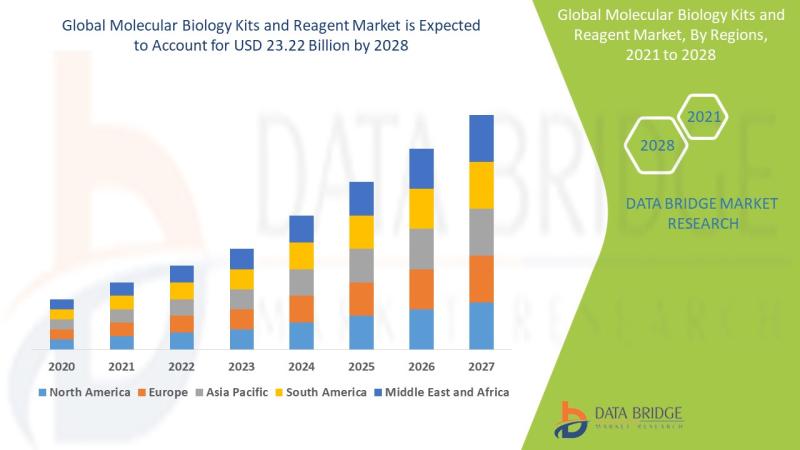Press release
Molecular Biology Kits and Reagents: Empowering Modern Research and Diagnostics
Molecular biology has become the cornerstone of numerous scientific and medical breakthroughs, providing invaluable insights into genetic material, protein function, and cellular processes. At the heart of this rapidly advancing field are molecular biology kits and reagents-tools that enable scientists to study, manipulate, and understand biomolecules with unprecedented precision. From basic research to complex diagnostics, molecular biology kits and reagents play a critical role in laboratories worldwide. In this post, we'll explore the fundamentals of molecular biology kits and reagents, examining their market size, market share, evolution, emerging trends, and the factors driving their ongoing growth.
Introduction to Molecular Biology Kits and Reagents
Molecular biology kits and reagents refer to pre-packaged, standardized tools and chemical compounds designed to facilitate specific processes or experiments within molecular biology. Reagents are chemicals or compounds used to detect, isolate, and measure biological markers, while kits are comprehensive sets of these reagents, often with supporting materials and protocols. These kits streamline complex experiments, allowing researchers to perform tasks such as DNA/RNA extraction, PCR amplification, gene cloning, protein isolation, and enzyme activity assays efficiently.
These kits and reagents have become essential for research across disciplines, including genetics, microbiology, oncology, pharmacology, and forensic science. They enable scientists to conduct experiments with greater accuracy, speed, and reproducibility, making them indispensable for modern laboratories. In clinical diagnostics, molecular biology kits are essential for rapid and accurate tests for pathogens, genetic mutations, and biomarkers, making them vital tools for advancing healthcare and personalized medicine.
Market Size of Molecular Biology Kits and Reagents
The global market for molecular biology kits and reagents is experiencing robust growth, driven by rising demand for genetic testing, increased focus on precision medicine, and advancements in biotechnology. The market size was valued at approximately $8 billion in 2021 and is expected to grow at a compound annual growth rate (CAGR) of around 10% from 2022 to 2030. Factors such as the COVID-19 pandemic have further amplified demand, as molecular biology kits became instrumental in PCR-based diagnostics and other molecular testing protocols.
North America and Europe currently dominate the market, thanks to well-established research infrastructure, a high prevalence of research institutions, and a strong focus on innovation in life sciences. However, the Asia-Pacific region is expected to see the fastest growth due to increased government investment in healthcare and biotechnology, a rapidly growing pharmaceutical industry, and rising demand for diagnostic testing. As more countries emphasize scientific research and healthcare advancements, the demand for molecular biology kits and reagents will continue to rise, contributing to the market's rapid expansion.
Market Share in Molecular Biology Kits and Reagents
The molecular biology kits and reagents market is led by a few key players who hold substantial shares due to their established expertise, brand trust, and high-quality products. Companies like Thermo Fisher Scientific, Qiagen, Merck KGaA, Bio-Rad Laboratories, and Agilent Technologies dominate the industry. These firms offer a comprehensive range of molecular biology kits and reagents that cater to both academic research and industrial applications, including PCR kits, cloning reagents, sequencing kits, and enzymes.
Due to the high demand for specialized tools, smaller players and new entrants are also gaining traction, especially those focused on niche applications or regions. Some emerging companies are developing reagents tailored for specific techniques or rare biomolecules, thereby catering to unique research needs. The market is segmented by application (such as nucleic acid isolation, protein analysis, and gene expression), and this specialization enables companies to target distinct market needs effectively. Overall, established players remain dominant, but innovative startups are bringing unique products to the market, increasing competition and driving further advancements.
The Evolution of Molecular Biology Kits and Reagents
The development of molecular biology kits and reagents has come a long way from the early days of labor-intensive and time-consuming laboratory protocols. Initially, molecular biology was a highly specialized field requiring scientists to prepare many reagents manually and perform complex, multi-step procedures to analyze DNA, RNA, or proteins. This not only slowed down research but also introduced variability and potential errors.
The 1980s and 1990s saw a wave of innovation with the advent of PCR (Polymerase Chain Reaction), allowing for rapid DNA amplification and significantly advancing molecular biology. This period also saw the commercialization of ready-to-use kits, which streamlined workflows and made molecular biology more accessible to a broader range of scientists. As a result, research efficiency improved, and molecular biology techniques became more reliable and reproducible.
With advancements in genetic engineering, sequencing, and biotechnology in the 2000s, molecular biology kits and reagents have evolved to support high-throughput experimentation, real-time analysis, and automation. Today, kits are often designed with specific applications in mind, and their protocols are standardized to minimize human error and enhance reproducibility. Furthermore, many modern kits integrate AI and machine learning to support precision diagnostics, allowing for accurate, rapid, and reliable results in both research and clinical settings.
Market Trends in Molecular Biology Kits and Reagents
Several significant trends are shaping the future of molecular biology kits and reagents. First, there is an increasing demand for personalized and precision medicine, which drives the need for targeted diagnostic kits. Molecular biology reagents and kits tailored for genetic testing, companion diagnostics, and pharmacogenomics are becoming more popular as healthcare systems focus on individualized treatments and early disease detection.
The trend toward automation and high-throughput analysis is also growing. Researchers are working with larger datasets, necessitating high-throughput equipment and automated kits that streamline workflows and reduce human intervention. Automated DNA/RNA extraction systems, high-throughput sequencing, and automated PCR kits are in high demand, especially in large research and clinical laboratories.
In parallel, there's a shift towards environmentally sustainable kits and reagents. With increased awareness of environmental impact, companies are focusing on developing eco-friendly products, such as recyclable plastic containers, non-toxic reagents, and kits with reduced waste. These green initiatives resonate well with labs aiming to lower their environmental footprint.
Another trend is the integration of digital technologies and data analytics in molecular biology kits, enhancing functionality and connectivity. Some companies are incorporating software that allows scientists to track and monitor experiments in real-time, connect data with cloud systems, and analyze experimental results using AI tools. This integration improves data accuracy and accessibility, making research more efficient.
Factors Driving the Growth of Molecular Biology Kits and Reagents
Several factors are contributing to the growing demand for molecular biology kits and reagents. A primary driver is the increasing prevalence of chronic diseases and genetic disorders, which have spurred the need for advanced diagnostics and genetic testing. Conditions like cancer, cardiovascular disease, and rare genetic disorders benefit significantly from molecular biology research, which in turn increases the demand for reliable and efficient testing kits.
The expansion of biotechnology and pharmaceutical industries is another growth factor. As companies seek to develop new drugs, vaccines, and diagnostics, they rely heavily on molecular biology kits and reagents for preclinical testing, gene editing, and clinical trials. The global COVID-19 pandemic highlighted the critical role of molecular biology kits in diagnostic testing, leading to a surge in demand and further emphasizing the importance of these tools in healthcare.
Advancements in genomics and precision medicine are also driving growth. With the falling costs of gene sequencing and the development of CRISPR and other gene-editing technologies, molecular biology research is expanding rapidly. These advancements require highly specialized reagents and kits, fueling demand for products that support cutting-edge research in genomics, proteomics, and cell biology.
Moreover, government initiatives and funding programs to support research in life sciences are driving demand for molecular biology kits and reagents. Many governments are increasing investment in healthcare infrastructure, R&D, and biotechnology, creating a supportive environment for market growth. This funding helps academic institutions, research labs, and healthcare organizations adopt advanced molecular biology techniques, further driving demand for high-quality kits and reagents.
Browse Trending Reports:
https://jondevide92.blogspot.com/2024/11/over-counter-otcdirect-to-consumer-dtc.html
https://jondevide92.blogspot.com/2024/11/space-situational-awareness-market-ize.html
https://jondevide92.blogspot.com/2024/11/vermicompost-market-size-share-trends.html
https://jondevide92.blogspot.com/2024/11/kids-smartwatch-market-size-share.html
https://jondevide92.blogspot.com/2024/11/full-egg-replacer-market-size-share.html
Conclusion
Molecular biology kits and reagents are at the forefront of scientific research and healthcare innovation, enabling researchers and clinicians to conduct complex experiments with greater speed, accuracy, and reproducibility. As advancements in genomics, diagnostics, and biotechnology continue, the demand for these essential tools is expected to grow steadily. Driven by trends in automation, precision medicine, and eco-friendly product development, the market for molecular biology kits and reagents is well-positioned for ongoing expansion. In the coming years, these tools will remain indispensable in both research and clinical settings, empowering scientists and healthcare providers to advance their understanding of biology and improve patient outcomes worldwide.
Contact Us:
Data Bridge Market Research
US: +1 614 591 3140
UK: +44 845 154 9652
APAC : +653 1251 975
Email: corporatesales@databridgemarketresearch.com"
About Data Bridge Market Research:
Data Bridge set forth itself as an unconventional and neoteric Market research and consulting firm with unparalleled level of resilience and integrated approaches. We are determined to unearth the best market opportunities and foster efficient information for your business to thrive in the market. Data Bridge endeavors to provide appropriate solutions to the complex business challenges and initiates an effortless decision-making process.
Introduction to Molecular Biology Kits and Reagents
Molecular biology kits and reagents refer to pre-packaged, standardized tools and chemical compounds designed to facilitate specific processes or experiments within molecular biology. Reagents are chemicals or compounds used to detect, isolate, and measure biological markers, while kits are comprehensive sets of these reagents, often with supporting materials and protocols. These kits streamline complex experiments, allowing researchers to perform tasks such as DNA/RNA extraction, PCR amplification, gene cloning, protein isolation, and enzyme activity assays efficiently.
These kits and reagents have become essential for research across disciplines, including genetics, microbiology, oncology, pharmacology, and forensic science. They enable scientists to conduct experiments with greater accuracy, speed, and reproducibility, making them indispensable for modern laboratories. In clinical diagnostics, molecular biology kits are essential for rapid and accurate tests for pathogens, genetic mutations, and biomarkers, making them vital tools for advancing healthcare and personalized medicine.
Market Size of Molecular Biology Kits and Reagents
The global market for molecular biology kits and reagents is experiencing robust growth, driven by rising demand for genetic testing, increased focus on precision medicine, and advancements in biotechnology. The market size was valued at approximately $8 billion in 2021 and is expected to grow at a compound annual growth rate (CAGR) of around 10% from 2022 to 2030. Factors such as the COVID-19 pandemic have further amplified demand, as molecular biology kits became instrumental in PCR-based diagnostics and other molecular testing protocols.
North America and Europe currently dominate the market, thanks to well-established research infrastructure, a high prevalence of research institutions, and a strong focus on innovation in life sciences. However, the Asia-Pacific region is expected to see the fastest growth due to increased government investment in healthcare and biotechnology, a rapidly growing pharmaceutical industry, and rising demand for diagnostic testing. As more countries emphasize scientific research and healthcare advancements, the demand for molecular biology kits and reagents will continue to rise, contributing to the market's rapid expansion.
Market Share in Molecular Biology Kits and Reagents
The molecular biology kits and reagents market is led by a few key players who hold substantial shares due to their established expertise, brand trust, and high-quality products. Companies like Thermo Fisher Scientific, Qiagen, Merck KGaA, Bio-Rad Laboratories, and Agilent Technologies dominate the industry. These firms offer a comprehensive range of molecular biology kits and reagents that cater to both academic research and industrial applications, including PCR kits, cloning reagents, sequencing kits, and enzymes.
Due to the high demand for specialized tools, smaller players and new entrants are also gaining traction, especially those focused on niche applications or regions. Some emerging companies are developing reagents tailored for specific techniques or rare biomolecules, thereby catering to unique research needs. The market is segmented by application (such as nucleic acid isolation, protein analysis, and gene expression), and this specialization enables companies to target distinct market needs effectively. Overall, established players remain dominant, but innovative startups are bringing unique products to the market, increasing competition and driving further advancements.
The Evolution of Molecular Biology Kits and Reagents
The development of molecular biology kits and reagents has come a long way from the early days of labor-intensive and time-consuming laboratory protocols. Initially, molecular biology was a highly specialized field requiring scientists to prepare many reagents manually and perform complex, multi-step procedures to analyze DNA, RNA, or proteins. This not only slowed down research but also introduced variability and potential errors.
The 1980s and 1990s saw a wave of innovation with the advent of PCR (Polymerase Chain Reaction), allowing for rapid DNA amplification and significantly advancing molecular biology. This period also saw the commercialization of ready-to-use kits, which streamlined workflows and made molecular biology more accessible to a broader range of scientists. As a result, research efficiency improved, and molecular biology techniques became more reliable and reproducible.
With advancements in genetic engineering, sequencing, and biotechnology in the 2000s, molecular biology kits and reagents have evolved to support high-throughput experimentation, real-time analysis, and automation. Today, kits are often designed with specific applications in mind, and their protocols are standardized to minimize human error and enhance reproducibility. Furthermore, many modern kits integrate AI and machine learning to support precision diagnostics, allowing for accurate, rapid, and reliable results in both research and clinical settings.
Market Trends in Molecular Biology Kits and Reagents
Several significant trends are shaping the future of molecular biology kits and reagents. First, there is an increasing demand for personalized and precision medicine, which drives the need for targeted diagnostic kits. Molecular biology reagents and kits tailored for genetic testing, companion diagnostics, and pharmacogenomics are becoming more popular as healthcare systems focus on individualized treatments and early disease detection.
The trend toward automation and high-throughput analysis is also growing. Researchers are working with larger datasets, necessitating high-throughput equipment and automated kits that streamline workflows and reduce human intervention. Automated DNA/RNA extraction systems, high-throughput sequencing, and automated PCR kits are in high demand, especially in large research and clinical laboratories.
In parallel, there's a shift towards environmentally sustainable kits and reagents. With increased awareness of environmental impact, companies are focusing on developing eco-friendly products, such as recyclable plastic containers, non-toxic reagents, and kits with reduced waste. These green initiatives resonate well with labs aiming to lower their environmental footprint.
Another trend is the integration of digital technologies and data analytics in molecular biology kits, enhancing functionality and connectivity. Some companies are incorporating software that allows scientists to track and monitor experiments in real-time, connect data with cloud systems, and analyze experimental results using AI tools. This integration improves data accuracy and accessibility, making research more efficient.
Factors Driving the Growth of Molecular Biology Kits and Reagents
Several factors are contributing to the growing demand for molecular biology kits and reagents. A primary driver is the increasing prevalence of chronic diseases and genetic disorders, which have spurred the need for advanced diagnostics and genetic testing. Conditions like cancer, cardiovascular disease, and rare genetic disorders benefit significantly from molecular biology research, which in turn increases the demand for reliable and efficient testing kits.
The expansion of biotechnology and pharmaceutical industries is another growth factor. As companies seek to develop new drugs, vaccines, and diagnostics, they rely heavily on molecular biology kits and reagents for preclinical testing, gene editing, and clinical trials. The global COVID-19 pandemic highlighted the critical role of molecular biology kits in diagnostic testing, leading to a surge in demand and further emphasizing the importance of these tools in healthcare.
Advancements in genomics and precision medicine are also driving growth. With the falling costs of gene sequencing and the development of CRISPR and other gene-editing technologies, molecular biology research is expanding rapidly. These advancements require highly specialized reagents and kits, fueling demand for products that support cutting-edge research in genomics, proteomics, and cell biology.
Moreover, government initiatives and funding programs to support research in life sciences are driving demand for molecular biology kits and reagents. Many governments are increasing investment in healthcare infrastructure, R&D, and biotechnology, creating a supportive environment for market growth. This funding helps academic institutions, research labs, and healthcare organizations adopt advanced molecular biology techniques, further driving demand for high-quality kits and reagents.
Browse Trending Reports:
https://jondevide92.blogspot.com/2024/11/over-counter-otcdirect-to-consumer-dtc.html
https://jondevide92.blogspot.com/2024/11/space-situational-awareness-market-ize.html
https://jondevide92.blogspot.com/2024/11/vermicompost-market-size-share-trends.html
https://jondevide92.blogspot.com/2024/11/kids-smartwatch-market-size-share.html
https://jondevide92.blogspot.com/2024/11/full-egg-replacer-market-size-share.html
Conclusion
Molecular biology kits and reagents are at the forefront of scientific research and healthcare innovation, enabling researchers and clinicians to conduct complex experiments with greater speed, accuracy, and reproducibility. As advancements in genomics, diagnostics, and biotechnology continue, the demand for these essential tools is expected to grow steadily. Driven by trends in automation, precision medicine, and eco-friendly product development, the market for molecular biology kits and reagents is well-positioned for ongoing expansion. In the coming years, these tools will remain indispensable in both research and clinical settings, empowering scientists and healthcare providers to advance their understanding of biology and improve patient outcomes worldwide.
Contact Us:
Data Bridge Market Research
US: +1 614 591 3140
UK: +44 845 154 9652
APAC : +653 1251 975
Email: corporatesales@databridgemarketresearch.com"
About Data Bridge Market Research:
Data Bridge set forth itself as an unconventional and neoteric Market research and consulting firm with unparalleled level of resilience and integrated approaches. We are determined to unearth the best market opportunities and foster efficient information for your business to thrive in the market. Data Bridge endeavors to provide appropriate solutions to the complex business challenges and initiates an effortless decision-making process.
Permanent link to this press release:
Copy
Please set a link in the press area of your homepage
to this press release on woodPRI. woodPRI disclaims liability for any content contained in
this release.
Recommend
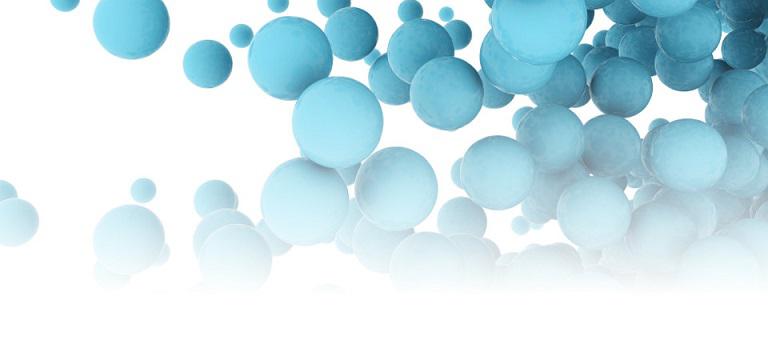
/newsMicroencapsulation Market Deep Analysis on Key Players - Dow Corning, Encapsys, Syngenta Crop Protection, Evonik Industries, 3M and Bayer
Market Study Report Adds Global Microencapsulation Market Size, Status and Forecast 2024 added to its database. The report provides key statistics on the current state of the industry and other analytical data to understand the market.
Extensive research is required for choosing the appropriate cor...

/newsGermany Airbag Market Size 2023: Global Share, Industry And Report Analysis By 2030 | Hyundai Mobis Co., Ltd. Key Safety Systems, Inc. Robert Bosch GmbH
Germany airbag market is expected to grow at a CAGR of around 6% during the forecast period. Germany Airbag Market research report refers to gathering and analyzing significant market data serve as best medium for various industry players to launch novel product or service. It is vital for key firms...
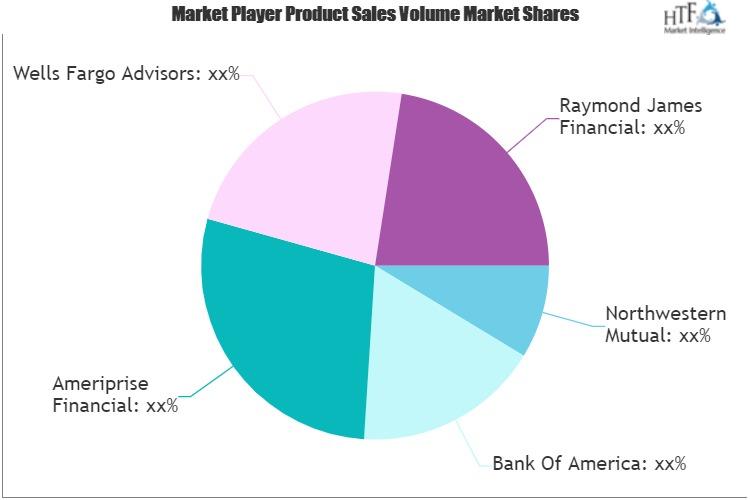
/newsSecurities Brokerages And Stock Exchanges Market Outlook 2021: Big Things are Happening
A new intelligence report released by HTF MI with title "Global Securities Brokerages And Stock Exchanges Market Survey & Outlook" is designed covering micro level of analysis by Insurers and key business segments, offerings and sales channels. The Global Securities Brokerages And Stock Exchange...
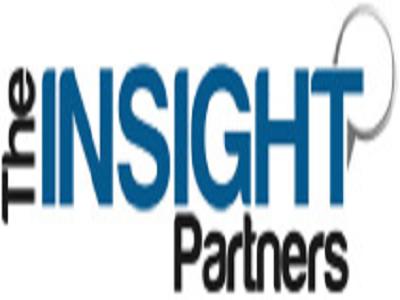
/newsRenewable Chemicals Market Emerging Trends and Competitive Landscape Forecast to 2028
The renewable chemicals market was valued at US$ 80,566.30 million in 2021 and is projected to reach US$ 1,76,750.76 million by 2028 it is expected to grow at a CAGR of 11.9% from 2021 to 2028. The research report focuses on the current market trends, opportunities, future potential of the market, a...
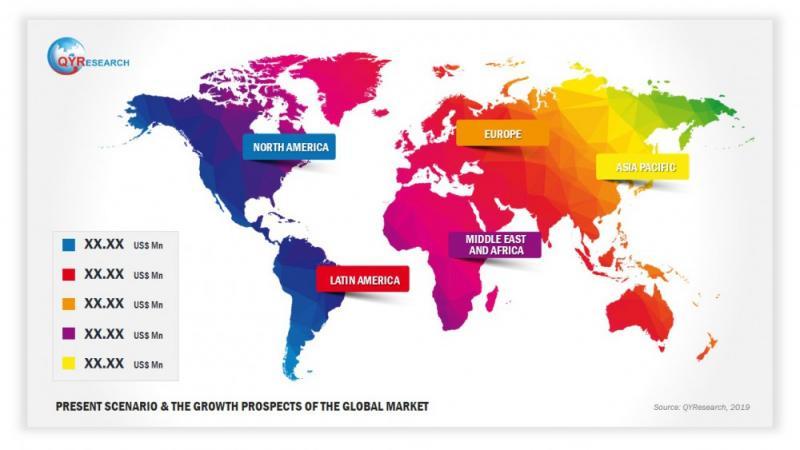
/newsHow Coronavirus is Impacting Cold Brew Coffee, Global Market Volume Analysis, Size, Share and Key Trends 2020-2026
"Market Latest Research Report 2020:
Los Angles United States, February 2020: The Cold Brew Coffee market has been garnering remarkable momentum in the recent years. The steadily escalating demand due to improving purchasing power is projected to bode well for the global market. QY Research's lates...
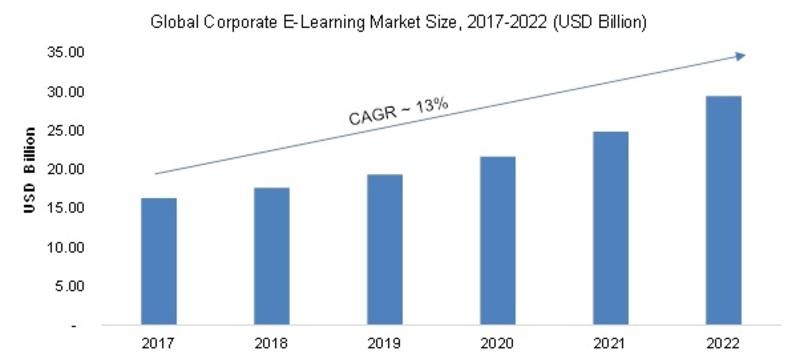
/newsCorporate E-Learning Market - Global Industry Size, Share, Key Players Analysis that are Infor, SkillSoft Corporation, Adrenna, CERTPOINT Systems and others with Regional Forecast to 2022
Overview:
E-Learning is used to enhance the learning procedures for newer job requirements and to make employees sound about the internal and external changes in the market and respective organizations. This method has created considerable differences in the ways of training and developing employee...
